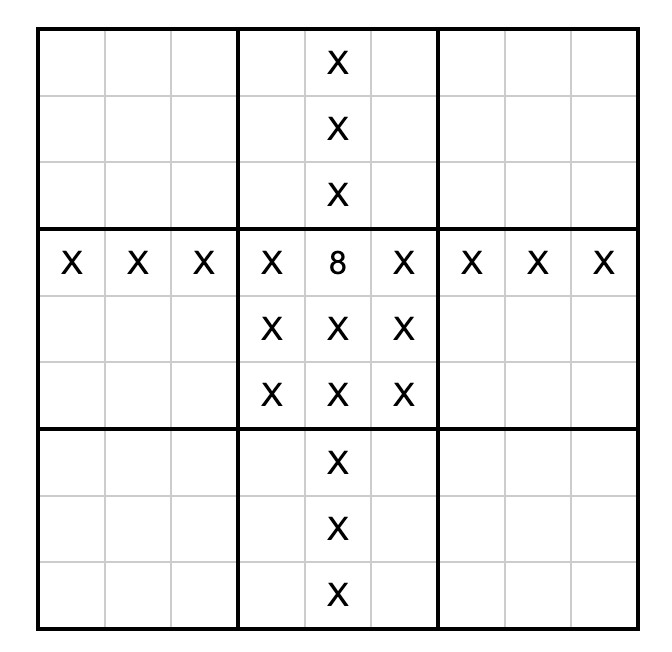21st October 2024
sudoku-in-python-packaging (via) Absurdly clever hack by konsti: solve a Sudoku puzzle entirely using the Python package resolver!
First convert the puzzle into a requirements.in file representing the current state of the board:
git clone https://github.com/konstin/sudoku-in-python-packaging
cd sudoku-in-python-packaging
echo '5,3,_,_,7,_,_,_,_
6,_,_,1,9,5,_,_,_
_,9,8,_,_,_,_,6,_
8,_,_,_,6,_,_,_,3
4,_,_,8,_,3,_,_,1
7,_,_,_,2,_,_,_,6
_,6,_,_,_,_,2,8,_
_,_,_,4,1,9,_,_,5
_,_,_,_,8,_,_,7,9' > sudoku.csv
python csv_to_requirements.py sudoku.csv requirements.in
That requirements.in file now contains lines like this for each of the filled-in cells:
sudoku_0_0 == 5
sudoku_1_0 == 3
sudoku_4_0 == 7
Then run uv pip compile to convert that into a fully fleshed out requirements.txt file that includes all of the resolved dependencies, based on the wheel files in the packages/ folder:
uv pip compile \
--find-links packages/ \
--no-annotate \
--no-header \
requirements.in > requirements.txt
The contents of requirements.txt is now the fully solved board:
sudoku-0-0==5
sudoku-0-1==6
sudoku-0-2==1
sudoku-0-3==8
...
The trick is the 729 wheel files in packages/ - each with a name like sudoku_3_4-8-py3-none-any.whl. I decompressed that wheel and it included a sudoku_3_4-8.dist-info/METADATA file which started like this:
Name: sudoku_3_4
Version: 8
Metadata-Version: 2.2
Requires-Dist: sudoku_3_0 != 8
Requires-Dist: sudoku_3_1 != 8
Requires-Dist: sudoku_3_2 != 8
Requires-Dist: sudoku_3_3 != 8
...
With a !=8 line for every other cell on the board that cannot contain the number 8 due to the rules of Sudoku (if 8 is in the 3, 4 spot). Visualized:

So the trick here is that the Python dependency resolver (now lightning fast thanks to uv) reads those dependencies and rules out every package version that represents a number in an invalid position. The resulting version numbers represent the cell numbers for the solution.
How much faster? I tried the same thing with the pip-tools pip-compile command:
time pip-compile \
--find-links packages/ \
--no-annotate \
--no-header \
requirements.in > requirements.txt
That took 17.72s. On the same machine the time pip uv compile... command took 0.24s.
Update: Here's an earlier implementation of the same idea by Artjoms Iškovs in 2022.
Recent articles
- Adding TILs, releases, museums, tools and research to my blog - 20th February 2026
- Two new Showboat tools: Chartroom and datasette-showboat - 17th February 2026
- Deep Blue - 15th February 2026